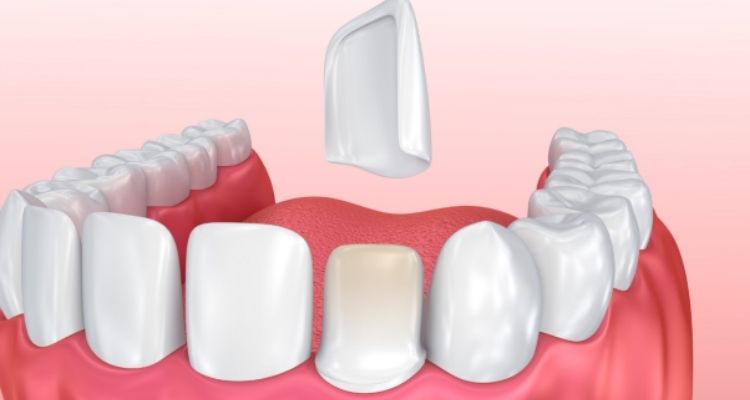Do you have chipped teeth or gaps between your teeth? Are your teeth crooked or misshapen? Are you wondering if dental veneers are right for you?
Dental veneers are long-lasting and affordable compared to dental implants. They give your teeth a natural appearance and your smile a confident boost.
What are dental veneers, and are they right for you? Let’s take a look.
1. What Are Dental Veneers?
Dental veneers are thin covers for your teeth that can give them a cleaner shape. They may get made from porcelain or composite resin materials.
Porcelain veneers give you a natural-looking surface, and they don’t stain easily. They’re durable and usually last longer than composite resin veneers.
If you were to chip a veneer made of porcelain, it would need to get replaced. Resin veneers, however, can be repaired.
Resin veneers are generally not as strong or durable as porcelain veneers. They may, however, cost less than porcelain veneers. They also require fewer trips to the dentist when you initially get them.
2. How Do Dental Veneers Get Put On?
The dental veneers process is fairly simple. Before you get your dental veneers made, you’ll need to make an appointment with your dentist to talk about your teeth and the best options for you.
Your dentist will often take X-rays and look for signs of serious dental problems, such as gum disease. These could prevent you from getting veneers.
If you and your dentist decide that veneers are a good choice for you, you’ll have an appointment where a mold gets taken for the creation of your veneers.
During your first appointment, your dentist will trim down your enamel on the tooth using a grinding tool. Next, they’ll take an impression of your teeth that will get sent to a lab for the veneer creation.
One to two weeks later, your dentist will place the veneers on your teeth. They will thoroughly clean your teeth and use the grinding tool again to make sure your tooth has a rough texture that the veneer can get easily applied to.
Finally, your dentist will use ultraviolet light and dental cement to help your veneer bind to your tooth. The appointment itself doesn’t usually last longer than two hours.
By the time you leave the office, you’ll be ready to show off your beautiful new smile.
3. Am I a Good Candidate for Dental Veneers?
Dental veneers are a great way to correct stained teeth or minor cosmetic issues. They can cover stains that can’t get removed with normal whitening products. They’re also an excellent fix for minor cracks and chips.
In order to get approved for veneers, your teeth will need to be in generally good health. You’ll also need enough tooth enamel to make sure the veneer has a surface strong enough to bond on.
4. How Much Are Dental Veneers?
Dental veneers can cost anywhere between $925 and $2,500 per tooth. Various factors will affect the actual total price of your veneers. These include the type of veneer, as porcelain styles usually cost more money.
Other factors include the amount of work required before the veneers are applied, as well as your geographical location. Typically, dental procedures in metropolitan areas are more expensive than those in more rural locations.
5. How Can I Afford Dental Veneers?
Most health insurance plans won’t cover the cost of cosmetic dentistry. There are, however, some exceptions.
For example, if you chipped or lost a tooth due to an accident, your insurance may cover all or some of the cost. Your insurance may also cover the cost of repairing or replacing existing veneers.
If you have dental insurance, the cost of your veneers may be partially covered. Make sure you check with your company before deciding to go through with the procedure.
Check with your dentist about payment plans before you begin. Some dentists may allow you to pay the treatment off a little each month. Others may give you a discount for paying for the entire procedure upfront. You’ll also save money on finance charges.
6. Are There Other Options?
Many employers offer a Health Savings Account (HSA) as part of their health insurance plan. These allow you to put aside money from your paycheck each month that is tax-sheltered. The funds in your HSA can be used for a variety of dental procedures, including cosmetic work.
If an HSA isn’t available, ask your employer about a Flexible Spending Account (FSA.) As with an HSA, an FSA is an account where tax-sheltered money is put aside each month. It can get used for out-of-pocket healthcare costs such as cosmetic dentistry.
With both an FSA and HSA, you’ll save money you would have paid in income taxes by using it for medical purposes.
The main difference between these plans is that an HSA is controlled by the individual, while an FSA is maintained by the employer. With an HSA, you can roll unused funds over from year to year. An FSA doesn’t allow you as much flexibility.
An FSA, however, usually requires lower annual contributions. Check with your Human Resources department to find out which options are available, and which ones would best suit your healthcare needs.
Get Smilin’
So what are dental veneers? They are a straightforward, reliable way to make your smile healthy and shiny again. With a little research, savings, and patience, you could be on your way to a new look in no time.
Don’t stop improving yourself with this article. For more health and beauty advice, read our blog today.

